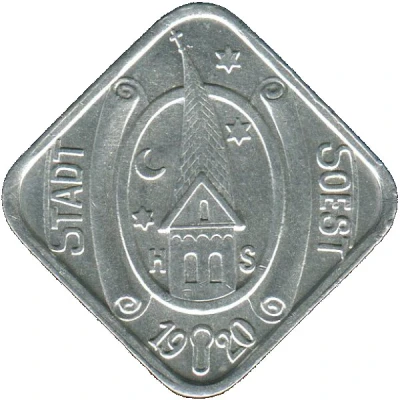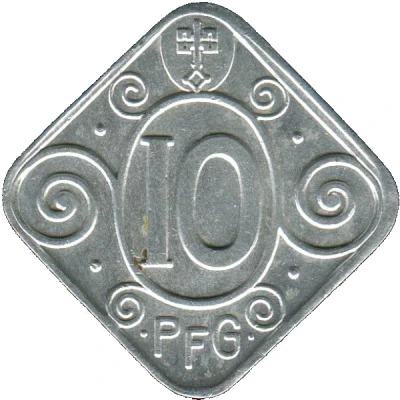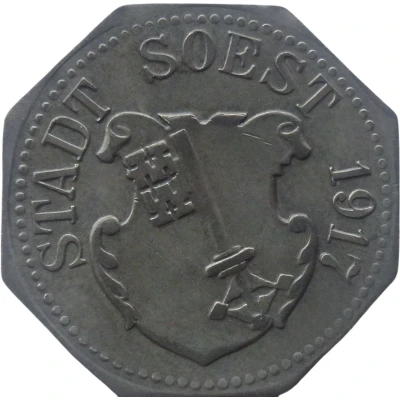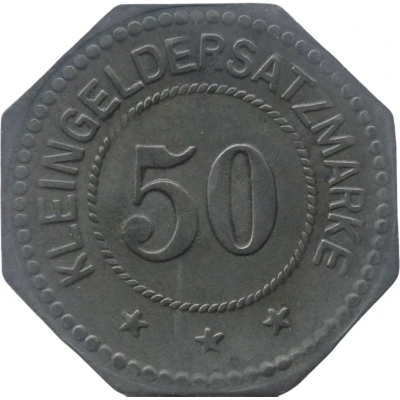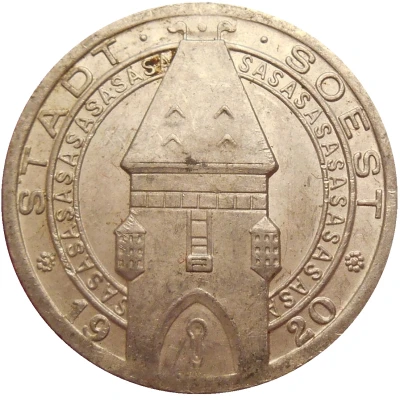
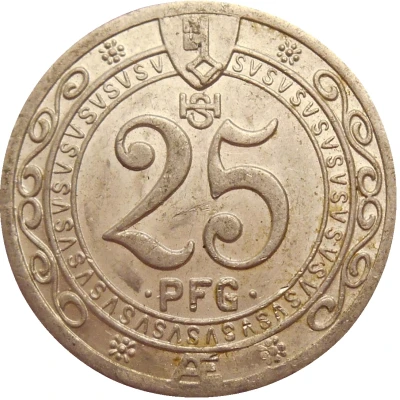

© Jérémy Pureur
25 Pfennigs - Soest
1920 year| Aluminium | 1.2 g | 22.5 mm |
| Issuer | City of Soest (notgeld) (Prussian province of Westphalia) |
|---|---|
| Period | Weimar Republic (1918-1933) |
| Type | Standard circulation coin |
| Year | 1920 |
| Value | 25 Pfennigs (25 Pfennige) (0.25) |
| Currency | Mark (1914-1924) |
| Composition | Aluminium |
| Weight | 1.2 g |
| Diameter | 22.5 mm |
| Thickness | 1.5 mm |
| Shape | Round |
| Technique | Milled |
| Orientation | Medal alignment ↑↑ |
| Demonetized | Yes |
| Updated | 2024-10-04 |
| Numista | N#89215 |
|---|---|
| Rarity index | 71% |
Reverse
At the top, the key of the city
in the center the face value
internal crown with letters S and V alternating
external crown with 4 flowers and decoration
Script: Latin
Lettering:
HS
25
PFG
AE
Edge
Plain
Comment
Issuing agency: [Stadt, Westfalen].Interesting fact
One interesting fact about the 25 Pfennigs - Soest 1920 coin is that it was made of aluminum, which was a unusual choice for coins at that time, as most coins were made of traditional metals like copper, silver, or gold. The use of aluminum was likely a cost-saving measure, as aluminum was less expensive than other metals and was also abundant in Germany at the time. This coin is a unique example of how the economic conditions and technological advancements of a particular time and place can influence the design and production of currency.
